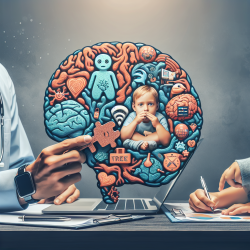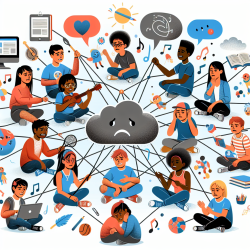As a therapist working in an educational setting, I’m always on the lookout for effective interventions to help our students, especially those with autism spectrum disorders (ASD). A recent study titled A Chinese Mind-Body Exercise Improves Self-Control of Children with Autism: A Randomized Controlled Trial offers promising insights into the use of mind-body exercises to enhance self-control in children with ASD.
Understanding the Study
The study focused on a traditional Chinese mind-body exercise called Nei Yang Gong, comparing its effectiveness to Progressive Muscle Relaxation (PMR) in improving self-control among children with ASD. The children who practiced Nei Yang Gong showed significant improvements in self-control, as measured by neuropsychological tests and parental reports, compared to those who practiced PMR.
Key Findings
- Children practicing Nei Yang Gong demonstrated better self-control and reduced autistic symptoms.
- Nei Yang Gong led to enhanced EEG activity in the anterior cingulate cortex, a brain region associated with self-control.
- Parents reported improvements in their children's sociability, cognitive awareness, and behavior.
Practical Implementation
As practitioners, we can incorporate Nei Yang Gong into our therapy sessions to help children with ASD. Here are some steps to get started:
- Training: Educate yourself on Nei Yang Gong through available literature and training programs.
- Integration: Introduce Nei Yang Gong exercises gradually into therapy sessions, focusing on simple movements and a relaxed attitude.
- Parental Involvement: Encourage parents to practice these exercises with their children at home to reinforce the benefits.
- Monitoring Progress: Use standardized questionnaires and neuropsychological tests to track improvements in self-control and behavior.
Encouraging Further Research
While the study's findings are promising, it's essential to continue researching the long-term effects and broader applicability of mind-body exercises like Nei Yang Gong. Practitioners are encouraged to participate in and support further research to validate and expand on these findings.
To read the original research paper, please follow this link: A Chinese Mind-Body Exercise Improves Self-Control of Children with Autism: A Randomized Controlled Trial.










